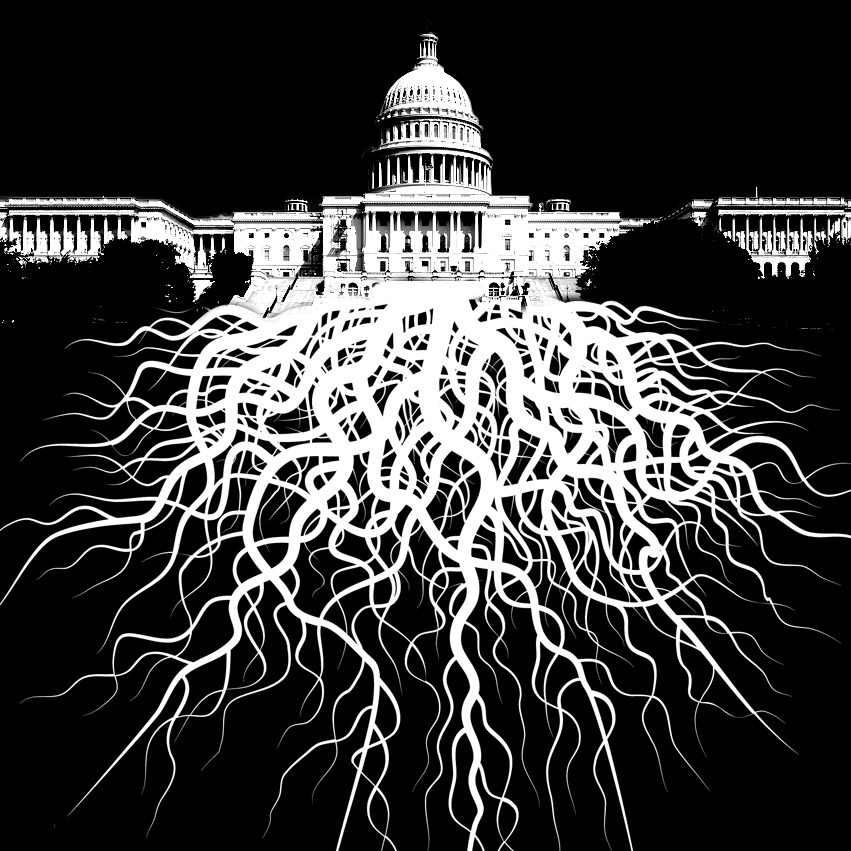I recently reconnected with a friend from fifteen years ago who used the term “deep state.”
Back in those days, I was already a voluntaryist, but the only word I had was “anarcho-capitalist.” Since I was working in Hollywood, most of the people I knew were Hollywood liberals. I had quickly discovered that talking about philosophy with those people was futile. They didn’t have a clue what I meant. This particular friend seemed to have a more open mind than most, so I had discussed political philosophy with him a few times. I could tell he thought I was a wacko, but harmless.
I recently saw a post on Facebook from him. He seemed to have drastically changed his opinion. Since I agreed with his point, I “liked” his post. To my surprise, he sent me a private message, saying that he didn’t understand what I was talking about back in the day but, since he had learned about the “deep state,” he realized I was right. The Facebook messenger is hardly the place for a philosophical discussion, so I didn’t ask the question on my mind, “WTF is the deep state?”
The State is, and always has been, Our Enemy, as Albert Jay Nock so brilliantly proved in 1935. It is the institution that claims the authority to impose its will on all the inhabitants of its geographical territory. It uses its monopoly on legalized violence to threaten, coerce, manipulate, and rob us all. Although it is made up of human beings, it has an identity of its own, dependent upon one myth that has acquired the attributes of religious faith. Even its priests, who one might expect to know better, delude themselves into believing that their will is the “will of the people” (aka the will of God) and that all they do is for the “greater good.”
Is the “deep state” just another term for the inherent evil of the State, or is it a different institution? The way my friend used it seemed to indicate the former, but then I heard others use it in a way that sounded more like the latter. So I looked it up.
It seems that the supporters of Donald Trump coined the term to mean the “state within the state,” what I always thought of as the establishment politicians, officials, and bureaucrats who hold the dominant power within the State. That makes sense because Donald Trump marketed himself as the anti-establishment candidate, and the “deep state” sounds more nefarious than simply “the State,” which is so widely worshiped, or “the establishment,” which has a connotation of dependable tradition.
If the “deep state” is a separate entity within the State and is in opposition to the “authority of the president,” then what is the State? Apparently, the State is the President, whose election represents the “will of the people,” the basis for the whole con game of some human beings having the “authority” to rule other human beings. The notion that 25 million out of 315 million Americans voting for Trump (many of whom just wanted to prevent the horror of a Hillary Clinton presidency) represents the will of the people is ludicrous. Furthermore, the idea that ill-intentioned politicians are trying to subvert that “will of the people” cloaks what is happening in reality. The “deep state” is merely a faction fighting for power against the president’s faction.
For as long as there has been a State, there have been factions vying for the power it possesses in its monopoly over legalized violence. This battle for power is nothing new or different. It is merely a new term designed to benefit from the public’s mistrust of the State while implying that the State is not the enemy.

